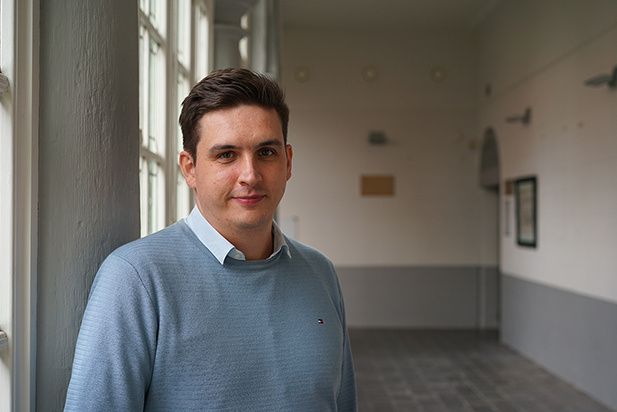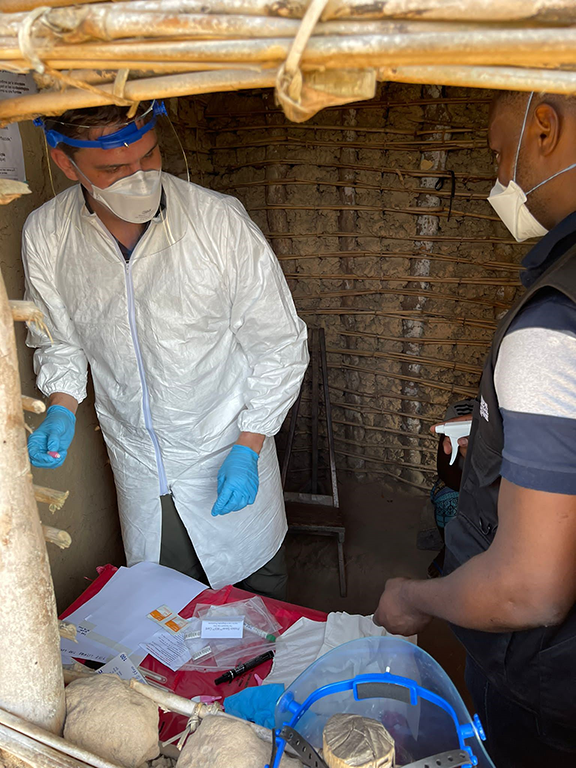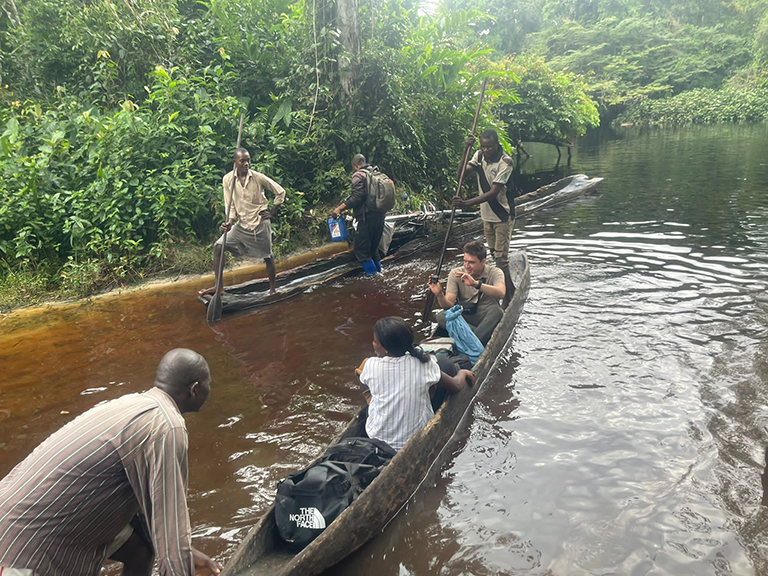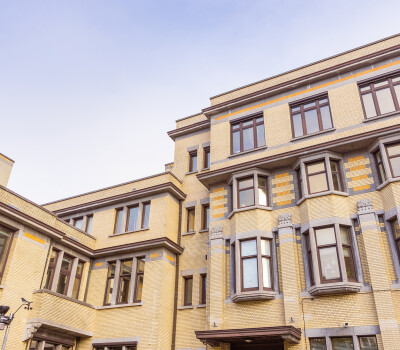"Lessons from local outbreaks aid us when diseases emerge elsewhere"

What inspired you to become a researcher?
My journey into research began during my medical studies at KU Leuven. As a clinician by training, I soon noticed significant gaps in our scientific knowledge. I felt the need to dig deeper and seek answers to fill those knowledge gaps.
During my studies, I worked as a student-researcher at KU Leuven during the summers, where I studied blood vessel growth in tumors. It was during this time that I discovered my passion for scientific research. I find it delightful to define a problem, formulate a hypothesis, and then search for the best possible solution. This process is a creative outlet for me.
Why did you choose ITM?
I had always been fascinated by ITM, almost to the point of it being magical (laughs). However, it took a long time for me to take the step, until after I completed my doctorate. During my specialisation in infectious diseases, I became intrigued by humanitarian medicine and the 'One Health' approach (an integrated, unifying vision to balance and optimise the health of humans, animals, and the environment).
This led me to work briefly for Doctors Without Borders, and six months later, I joined ITM in October 2020, starting my postdoctoral research. Through the Outbreak Research Team, I discovered fieldwork, which was a true revelation (laughs). So, when the opportunity came to become a ZAP professor in 2021, I did not hesitate.
ITM turned out to be the ideal working environment for me. The focus on humanitarian work, the blend of cutting-edge science, and the capacity-sharing through ITM's strong international partnerships, particularly with African countries, were significant factors. In this sense, my fascination with ITM was justified. My expectations were not only met but exceeded. I am surrounded by fantastic people here, the atmosphere, the vast knowledge, the immense motivation, and the open collaboration with partners. All of this energises me and brings satisfaction. So yes, I am content with my choice of ITM.
Before working at ITM, I spent six months in Sierra Leone for a project related to Lassa fever, which is where I left a piece of my heart. I got to know and live within the local culture. It's incredibly enriching, and ITM also proved to be the right choice in that aspect. My passion for science and African cultures perfectly blend here.
However, I'm not oblivious to the challenges that exist. ITM's colonial history, the rapidly evolving world demand changes and adaptability, and as an institution, we must adjust accordingly. But even that makes things fascinating.
Bio
Laurens is a physician, specialised in internal medicine with a keen interest in emerging infectious diseases.
He previously worked on a project related to Lassa fever for Doctors Without Borders and has translational research experience in bacteriology and virology.
Before joining ITM, he worked as a researcher at the Rega Institute for Medical Research at KU Leuven, focusing on developing treatments and vaccines against SARS-CoV-2, while conducting clinical studies with hospitalised COVID-19 patients.
Since 2022 he is an assistant professor of Clinical Emerging Infectious Diseases at ITM and collaborates closely with ITM’s multidisciplinary Outbreak Research Team.

ITM's founding is directly tied to Belgium's colonial history in former Congo. What's your vision for the institution regarding this historical legacy?
Although ITM has successfully transformed from a colonial institution into one with a positive role in global health, we still carry that history with us. Finding a solution to this is not simple. I view it as our duty to actively contribute to eliminating the negative effects of colonialism. This begins with being acutely aware of the persistent inequality.
The rich West still dominates science, retains knowledge, and often serves its own interests. Fortunately, there's now a reverse trend, and 'parachute science' is decreasing. In the past, scientists used to collect samples and take them to their own regions for further research. Nowadays, ownership of research is increasingly being transferred to where it belongs: locally. As far as I'm concerned, this is a significant opportunity for ITM. We must critically assess our role and added value and support this positive evolution.
ITM is already working on this by focusing on equitable international partnerships and collaborations. However, we must always be aware of the inequalities in resources and opportunities. By sharing our knowledge and expertise, developing and funding projects in collaboration with local partners, we can actively contribute to correcting the power imbalance.

What are working on now at ITM?
I'm currently a professor in Emerging Infectious Diseases. In this role, I investigate viruses and other pathogens with epidemic potential that could lead to outbreaks. My primary focus lies in the geographical South, specifically the African continent. Through close collaboration with our partners, I aim to learn from local outbreaks to protect other regions. Due to globalisation and climate change, outbreaks are now less local than before, and diseases can emerge almost anywhere.
A perfect example of my work is the recent mpox outbreak. In the Democratic Republic of the Congo (DRC), there was already suspicion that mpox had a considerably larger outbreak potential than previously believed. Therefore, we initiated a project there to investigate local outbreaks, which proved to be prophetic. Upon my return in May 2022 from an adventurous journey to reach an outbreak epicenter in a remote village, I learned that mpox cases had also emerged in our area. Understanding local outbreaks in the DRC has helped us better comprehend outbreaks in other locations.
Aside from mpox, I work on various other projects, such as leg ulcers in Burundi, cholera in Cameroon, and Ebola in the DRC, primarily focusing on Central and West African countries. However, for knowledge exchange, I maintain contacts with institutions and experts worldwide.
What are your goals for the coming years?
ITM has built a remarkable scientific record, and now, I hope to see a meaningful future. For me, it lies in multidisciplinary teamwork by collaborating with other units and experts, both within and outside ITM, to strengthen each other. I want to make the Outbreak Research Team a focal point, as we have a young, dynamic, and talented team that produces excellent work. We should give them every opportunity, as speed and flexibility are crucial during an outbreak. In addition, I'm contemplating how science can sustainably combine with capacity sharing. That's why I mentor several doctoral students, contribute to training, and everything that helps to share and disseminate knowledge. Along with our partners, we seek opportunities and try to secure funding.

Want to hear more about Laurens' work?
Listen to Transmission, the brand new podcast series of the Institute of Tropical Medicine in Antwerp. First season "Outbreaks and emerging infectious diseases" is out now!
Spread the word! Share this story on









